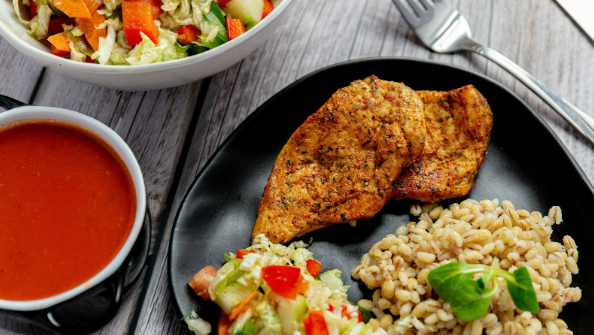
Keto Diet for Vegetarian Indian
If you’re a vegetarian following the keto diet and happen to be from India, you may find yourself facing some unique challenges. The traditional Indian diet is rich in carbohydrates, making it difficult to adhere to the low-carb requirements of the ketogenic lifestyle. However, with careful planning and creativity, it is definitely possible to follow a keto diet as a vegetarian in an Indian context.
One of the key aspects of the keto diet is restricting carbohydrate intake while increasing healthy fats and protein consumption. For vegetarians, this means finding alternative sources of protein other than meat. Luckily, there are several plant-based options available such as tofu, tempeh, lentils, chickpeas, and paneer (cottage cheese) that can easily be incorporated into your meals.
Additionally, with Indian cuisine being known for its vibrant flavors and spices, there are plenty of delicious vegetarian dishes that can fit within the parameters of a keto diet. Recipes like cauliflower rice biryani or palak paneer made with coconut milk instead of regular dairy can help you maintain ketosis while still enjoying authentic Indian flavors.
Understanding the Keto Diet
The keto diet has gained significant popularity in recent years for its potential to help with weight loss and improve overall health. But what exactly is this diet all about? Let’s dive into the basics of the keto diet and understand how it works.
At its core, the ketogenic diet is a low-carbohydrate, high-fat eating plan that aims to shift your body into a state of ketosis. Ketosis occurs when your body doesn’t have enough carbohydrates to use as fuel, so it starts breaking down fat stores instead. This metabolic process leads to the production of ketones, which are used by the body as an alternative energy source.
To achieve ketosis, followers of the keto diet need to drastically reduce their carbohydrate intake and increase their consumption of healthy fats. Typically, carbohydrates make up only around 5-10% of total daily calories on a keto diet, while fats account for approximately 70-75% and protein makes up about 20-25%.
By limiting carbohydrates, you’re forcing your body to rely primarily on fat for energy. This can result in more stable blood sugar levels and reduced insulin spikes throughout the day. Additionally, since dietary fats are more satiating than carbs or proteins, many people find that they naturally eat fewer calories on a keto diet without feeling deprived.
One key aspect to note about the ketogenic diet is that it emphasizes consuming healthy sources of fats such as avocados, nuts and seeds, olive oil, coconut oil, and fatty fish like salmon. These fats provide essential nutrients while also helping you feel satisfied after meals.
Vegetarianism and the Indian Culture
When exploring vegetarianism in the context of Indian culture, it becomes evident that this dietary choice has deep roots and a long-standing tradition. In India, vegetarianism is not just a personal preference but often an integral part of religious practices and cultural norms. Let’s delve into the rich connection between traditional Indian cuisine and vegetarianism.
-
Cultural Significance
Vegetarianism holds immense significance in various aspects of Indian culture. Many Indians follow religious beliefs such as Hinduism, Jainism, or Buddhism, which promote compassion for all living beings. These religions emphasize non-violence (ahimsa) and advocate abstaining from consuming meat or animal products to uphold these principles. As a result, vegetarian diets have become ingrained in the fabric of daily life for millions of people across India.
-
A Diverse Culinary Landscape
India’s culinary landscape boasts an incredible array of flavorful vegetarian dishes that cater to diverse tastes and preferences. Each region within India has its own distinct cooking styles and traditional recipes passed down through generations. From North Indian delicacies like dal makhani (creamy lentils) and paneer tikka (grilled cottage cheese) to South Indian favorites like dosas (fermented rice crepes) and idlis (steamed rice cakes), there is no shortage of delectable vegetarian options available.
-
Nutritional Adaptability
Contrary to misconceptions surrounding plant-based diets lacking essential nutrients, traditional Indian cuisine showcases how vegetarian meals can be nutritionally balanced and satisfying. The combination of legumes, grains, vegetables, dairy products, nuts, seeds, herbs, and spices provides a wide range of vitamins, minerals, proteins, fibers, antioxidants that contribute to overall well-being.
In conclusion, vegetarianism has deep cultural roots in India and plays an integral role in traditional Indian cuisine. The diverse range of flavorful vegetarian dishes showcases the adaptability and nutritional value that plant-based diets can offer. Moreover, by choosing vegetarianism, individuals in India are not only honoring religious beliefs but also making a positive impact on sustainability and environmental conservation.

